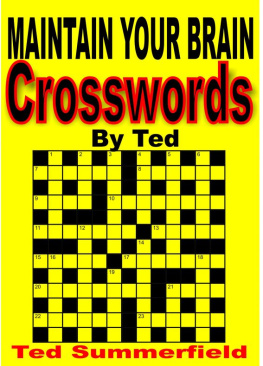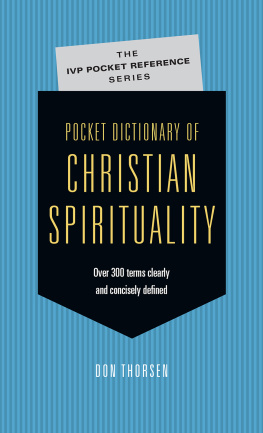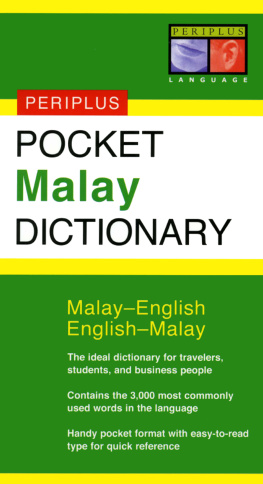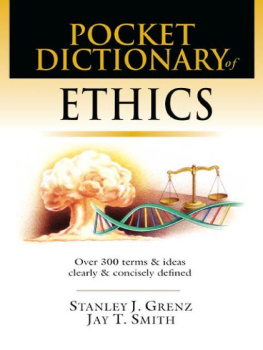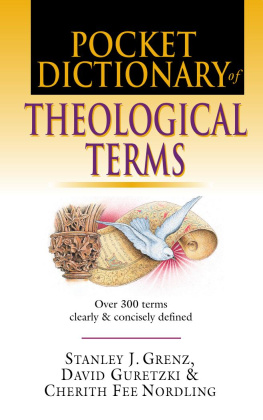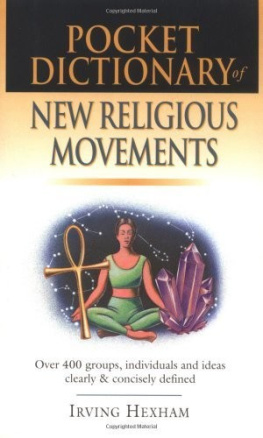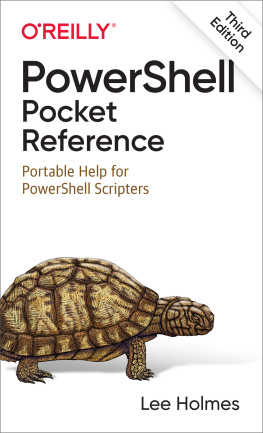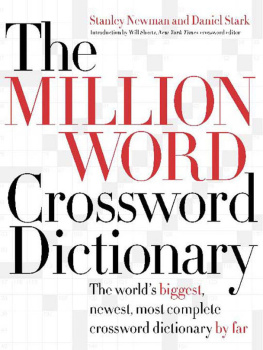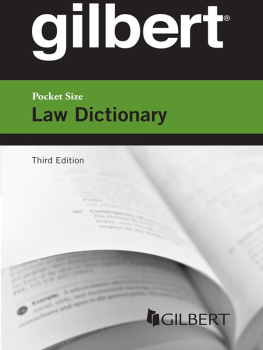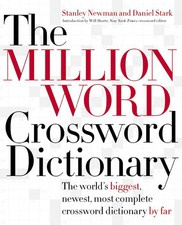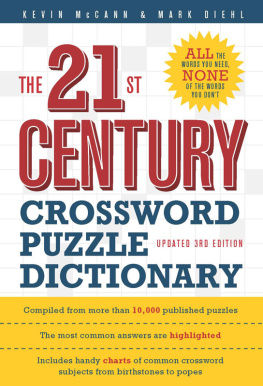B. J. Holmes - Pocket crossword dictionary
Here you can read online B. J. Holmes - Pocket crossword dictionary full text of the book (entire story) in english for free. Download pdf and epub, get meaning, cover and reviews about this ebook. year: 2015, publisher: Bloomsbury Publishing, genre: Children. Description of the work, (preface) as well as reviews are available. Best literature library LitArk.com created for fans of good reading and offers a wide selection of genres:
Romance novel
Science fiction
Adventure
Detective
Science
History
Home and family
Prose
Art
Politics
Computer
Non-fiction
Religion
Business
Children
Humor
Choose a favorite category and find really read worthwhile books. Enjoy immersion in the world of imagination, feel the emotions of the characters or learn something new for yourself, make an fascinating discovery.

- Book:Pocket crossword dictionary
- Author:
- Publisher:Bloomsbury Publishing
- Genre:
- Year:2015
- Rating:4 / 5
- Favourites:Add to favourites
- Your mark:
- 80
- 1
- 2
- 3
- 4
- 5
Pocket crossword dictionary: summary, description and annotation
We offer to read an annotation, description, summary or preface (depends on what the author of the book "Pocket crossword dictionary" wrote himself). If you haven't found the necessary information about the book — write in the comments, we will try to find it.
Pocket crossword dictionary — read online for free the complete book (whole text) full work
Below is the text of the book, divided by pages. System saving the place of the last page read, allows you to conveniently read the book "Pocket crossword dictionary" online for free, without having to search again every time where you left off. Put a bookmark, and you can go to the page where you finished reading at any time.
Font size:
Interval:
Bookmark:

Up till then I had never given the wretched, impenetrable thing more than a glance. At first I had little success, managing maybe a couple of answers if I was lucky before throwing it aside in frustration. However, in time and using assorted reference books, I eventually completed my first grid to my surprise and immense satisfaction. From then I was hooked, and was soon sampling all the broadsheet and tabloid papers buying, begging, borrowing or stealing. And, in time, I was picking up prizes from national newspapers such as the Financial Times and the Independent. Looking back, I can see that my interest in cryptics was kick-started when it dawned on me that there was some regularity in the tricks that compilers got up to.
As I couldnt keep all their little dodges in my head I began writing them down, solely for my own reference. In time the notes became a thick file by the side of my bed. Although I use assorted dictionaries, thesauruses, reference books and so on it was when I realised my own file had become not only my first means of attack when facing a virgin grid, but also my most-used source, it occurred to me there was a book in it that could be useful to others. And you hold the results in your hand.
Todays grids can be square, rectangular or odd-shaped and can have either black squares or thick lines to separate the answers.
They are easily recognized because their clues are usually short and their solution calls for knowledge rather than language manipulation. They appear under various titles such as Quickie, Coffee-break and Concise. They have two main sub-categories: the general knowledge type and the specialised, the latter appearing in magazines and drawing on the specialist knowledge of their particular readership from pop music and golf to train-spotting. Then there is the cryptic which has less the nature of a knowledge test and more the character of a game a naked battle of wits between the compiler and the punter. And, like a game, it has its rules and conventions.
The setter of a crossword is actually on a par with a conjuror. In both activities the name of the game is deception. Deception has two forms. Firstly, disguise. A conjuror will disguise the trappings of his trade: what seems like a solid box, can be hollow. Similarly, through the clever use of words a crossword compiler will draw a veil over his actual intent.
For example, Serve held by the Italian superstar (4) embodies a couple of disguises. Serve is dressed up in the clue as a noun, whereas the underlying intention is that it should be equated with the verb to DO (i.e. as a charlady). On the other hand, Italian is disguised as an adjective relating to superstar, yet its role lies in the two words the Italian (i.e. Italian for the) which is IL. Finally, DO held by IL yields the solution IDOL, a term which can be applied to a superstar.
Conversely a noun can be dressed up as a verb to throw you off the scent. Take Hide article held by Gonerils father (7) Sitting at the front Hide looks for all the world like a verb and you probably wouldnt realise it isnt until you start putting the thing together from the clues other parts. Gonerils father is LEAR dont worry if you didnt know this, its the kind of thing we have in our glossary. Then, LEAR goes around THE (article) to produce the answer LEATHER, a noun synonymous with hide. The second form of deception is misdirection. The astute observer knows that whenever a conjuror says Look, nothing in my hand, the real business is likely to be taking place somewhere else, like the magicians other hand.
And so too, with the crossword. One must fight the temptation to look where the compiler is directing our attention. Example: Set meal (2,6) This is a familiar phrase describing restaurant fare. Once we are on our guard that we might be being misdirected, the last thing we should think of is a restaurant! So, what else can the word set imply? A radio set? A television set? Bells might ring at that point, leading to the notion that, in that context, a set meal is in fact a TV DINNER. Remember, the crossword clue has to be synonymous with the solution (or at least be strongly suggestive of the answer) so the compiler will be very wily in using the only tools available to the craft: disguise or misdirection, usually both at the same time.
Now, there is a feeling amongst many solvers that the use of books, etc. is in some way cheating. I have no such qualms. Of course, there will be expert solvers who will pride themselves on finishing a broadsheet cryptic with no use of aids, but these lucky people must be a minority, an enviable elite. My attitude has always been that the compiler has many books and aids at his disposal so why should the common-or-garden solver (like me and most of the readers of this book) be at a disadvantage? So you need: a standard dictionary, the bigger and the more up to date the better. Obviously you can only use a dictionary if you already know what you are looking for, so the main function of your dictionary will be for confirming spelling.
However it can also be used for checking the existence of a word youve never heard of. As an example, the word barathea may mean nothing to you as it meant nothing to me when I tackled the following clue:
Font size:
Interval:
Bookmark:
Similar books «Pocket crossword dictionary»
Look at similar books to Pocket crossword dictionary. We have selected literature similar in name and meaning in the hope of providing readers with more options to find new, interesting, not yet read works.
Discussion, reviews of the book Pocket crossword dictionary and just readers' own opinions. Leave your comments, write what you think about the work, its meaning or the main characters. Specify what exactly you liked and what you didn't like, and why you think so.

